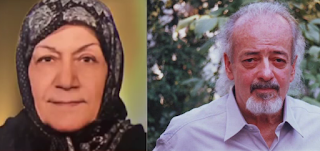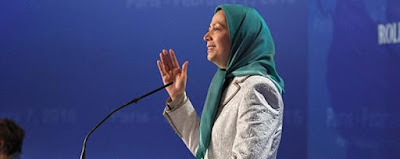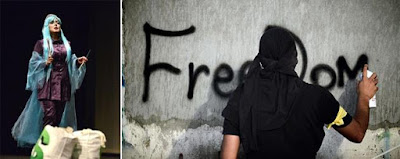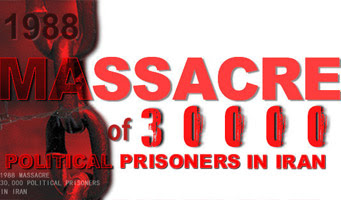 |
| Mehri Jannatpour - Dr. Mohammad Maleki |
On
December 3rd 2015, Iranian dissident and activist Mehri Jannatpour passed away.
Jannatpour was remembered for her bravery and perseverance as a political
activist in Iran over the last 40 years. This included three separate terms
served in prison for her support and affiliation with the People's Mojahedin
Organization of Iran (PMOI), one of Iran’s principal opposition organizations.
During
her imprisonment Jannatpour was subjected to cruel mistreatment and torture,
yet she remained steadfast in her beliefs and resistance. Not only was
Jannatpour a symbol of resistance as an uncompromising dissident, but she was
also remembered for her dedication and care as a mother. Her children were
raised to continue her path of resistance and defiance, and remain actively
involved in confronting the Iranian regime and its crimes.
Mehri
Jannatpour was honored by Iranian dissidents at her funeral service, including
Dr. Mohammad Maleki, the first post-revolution Chancellor of Tehran University,
who, like Jannatpour has continued to stand with dignity and defiance in the
face of the dictatorship in Iran despite his old age.
Maleki
delivered a eulogy on December 5th in which he praised Jannatpour as an
activist and as a mother, and lauded the path chosen by her children. Including
one of her children who is residing in Camp Liberty, Iraq, which was recently
the target of a despicable terrorist attack.
“But, they are persevering and are as solid as a mountain. They are
this mother's children. How fortunate she was! There are many who come into
this world, "enjoy" life and die. But the fulfillment experienced by
such mothers is different.”
Maleki
continued his eulogy in open defiance of the regime by openly praising the path
taken by Jannatpour and her children. This path includes standing with the PMOI
against the regime in Iran. The penalty for such a stance is normally death,
yet Maleki spoke unwaveringly and resolute in his praise for this path, and
referenced the 1988 massacre against members of the PMOI as proof that violence
and repression cannot crush this movement.
“I am reminded
of a quote by the late Grand Ayatollah Montazeri who wrote to Khomeini in a
letter that rest assured, an idea cannot be killed through murder. You have
killed so many, you have beaten so many, you have destroyed so many.”
He
added, “This will be so as long as there are people who care for their people,
and as long as there are people who say "seek freedom from cradle to grave."
Very
rarely is such public defiance exhibited in Iran, and in such a bold fashion
and in such powerful forum. At one point Maleki even states, “Let them hear me,
and record me, those who are responsible for this.” Whether you agree with the
political ideology expressed by Jannatpour or Maleki, it is impossible to deny
their courage and the price they have paid in fighting for freedom in Iran.
The
speech given by Maleki was just as remarkable as the life lived by Ms.
Jannatpour. Both embody the passion and bravery of Iran’s history, people and
hopes.
Maleki
has led silent protests outside of Evin Prison to call for the release of
political prisoners, and has been in and out of prison himself over the last
decade. Maleki’s courage as an elderly man mirrors that of Jannatpour, and his
bravery against the brutal regime is an inspiration to all Iranians.
Hamid
Yazdan Panah is an Iranian-American human rights activist and attorney focused on
immigration and asylum in the San Francisco Bay Area.






